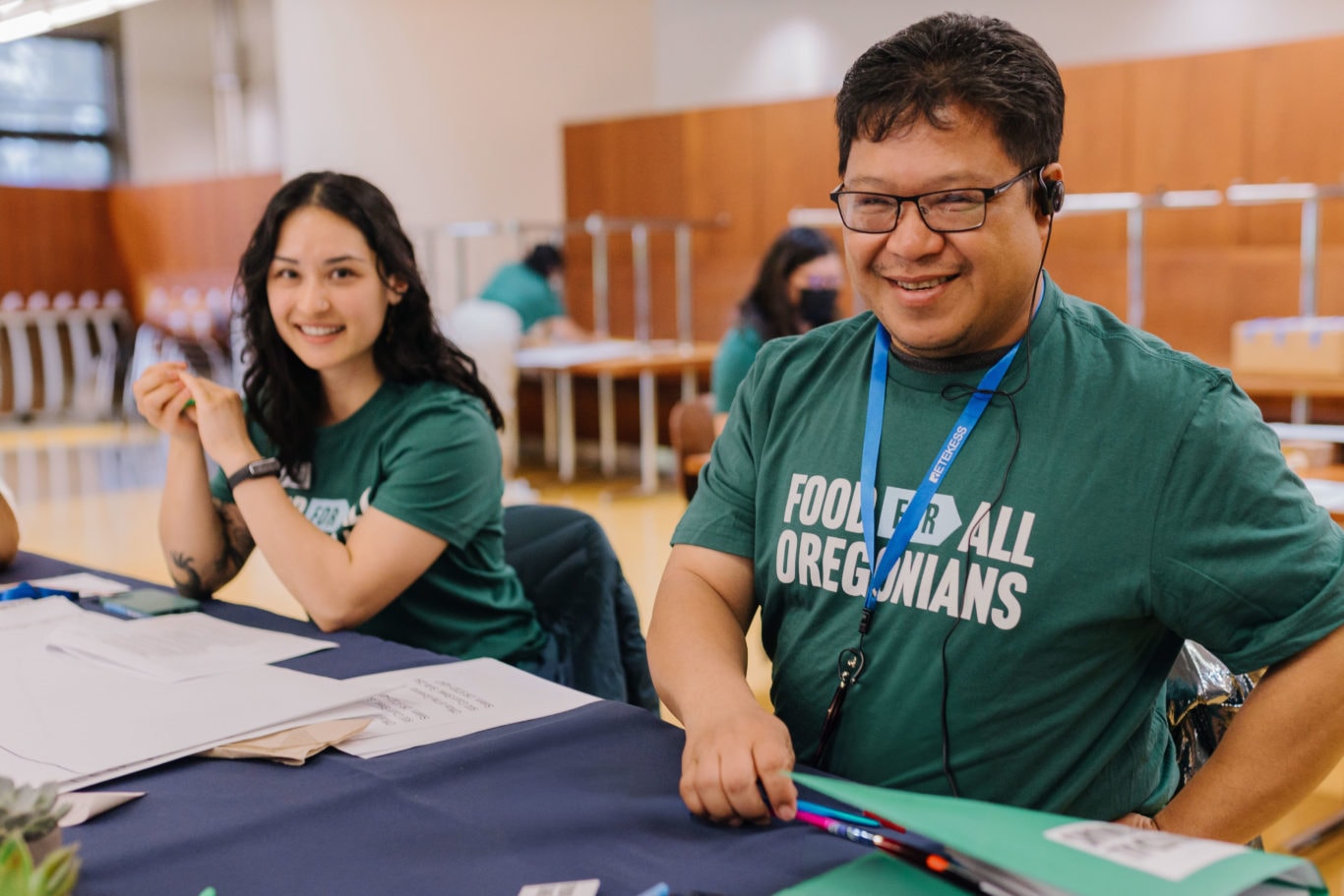Community Leader, Advocate and Parent: Cayle Tern
Community Leader, Advocate and Parent: Cayle Tern
In 1980, Cayle immigrated to the United States with his family as refugees from the war in Laos. His parents were farmers who moved up and down the West Coast in search of stable employment. “My family moved a lot because it was hard to find work,” Cayle reflects. “We were poor. We had help from family, friends, churches and relied on public assistance.” His family eventually settled in Redding, California where Cayle attended Chico State University. He earned his Masters of Social Work from Portland State University.
Cayle started his professional life with the Oregon Department of Human Services as an eligibility worker and went on to serve as a family coach for the next 15 years. He worked extensively with immigrants and non-citizens. “I saw first hand how people continue to struggle like I did – and this is 40 years since I arrived [to the U.S.],” he says.
This experience led Cayle to the Asian Pacific American Network of Oregon Communities United Fund (APANO CUF), attracted by the organization’s mission to unite Asians and Pacific Islanders to build power, develop leaders and advance equity. A leading voice for the community since 1996, APANO CUF and APANO continue to evolve through grassroots organizing, advocacy, community development and cultural work.
“APANO gave me the opportunity to help folks at the roots by being involved with advocating for policy change to have a more inclusive environment — not just for immigrants and refugees, but for everyone,” Cayle said. With deep roots in the Portland community, Cayle has long been invested in improving the living conditions of his neighbors for the better. He serves on the Reynolds School Board and as president of the Iu-Mien Association of Oregon, in addition to his role as APANO’s Immigrant Program Manager.
“Like many immigrants and refugees, I had a tough upbringing. I experienced racism and hate. I experienced discrimination. And in spite of all the other social inequities and challenges created by being a family on public assistance, I was expected to excel and become American. Not American by my own standards but standards established by White America,” Cayle reflected. “The common question that I received from people was ‘Then why do you stay? Why don't you just leave and go back to your country?’ Well, many of us can't. The violence that you see on TV with an oppressive government is very real.”
Cayle’s deep sense of empathy and drive to support his community through political action has aided him in being a compassionate advocate for Food for All Oregonians. He helped to host APANO’s community conversation on food security where participants highlighted many barriers to accessing food. Common concerns included the rising cost of living, transportation, access to culturally appropriate foods, communication and information barriers, and the impact of immigration status. Combined, these obstacles to food access and broader assistance programs negatively affect community well-being and sense of optimism for the future.
“The Food for All Oregonians campaign is big and we need to make sure that it passes — because it will help mitigate some of these issues.” Cayle noted. “The results we saw [from our conversations] weren’t surprising. But that goes to show you how hard it is to get people to see the importance of making sure that the members of our communities — regardless of who you are, where you’re from, your background or your religion — should not have to experience hunger.”
Cayle’s energy and passion for grassroots advocacy help drive our shared work to change Oregon for the better, so that future generations won’t face the same struggles. “I recall the days when I was going to school. For breakfast they would serve things like oatmeal, cheese sandwiches, cereal, peanut butter and jelly, hot dogs, and salads — which are particularly White American food,” he recalled. “And on those days, I wouldn’t eat because that’s not something that we normally eat and it just didn't taste right. I remember coming home, sometimes crying because I was so hungry. Imagine going to school and trying to learn when you're hungry.”
Forty years later, many of the same discriminatory policies and practices that Cayle faced as a child continue to impact families. “I have kids of my own now. They come home hungry and they come home telling me that there's nothing to eat [at school]. Now, for me, I’m fortunate enough to be home — and able to provide my kids food when they get home.”
All people in Oregon deserve to have access to nutritious and familiar food options. But ongoing pandemic impacts and rising food prices are forcing more and more households to make difficult budget decisions. Some are able to turn to food assistance programs like SNAP to help fill the gap, but intentional barriers hinder too many families’ ability to access essential resources.
Our communities need meaningful change to remove these long-standing barriers and ensure Food for All Oregonians. By working together in the coming months, we have a real opportunity to create a support network that’s accessible to everyone — no matter where we’re from.
“I just can’t express how important it is to be able to provide for members in our community,” Cayle said. “Nobody needs to be hungry in this country. It’s not that we can’t afford this; we can. We just have to make it a priority.”
